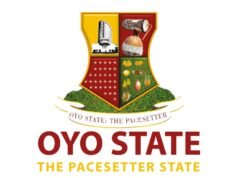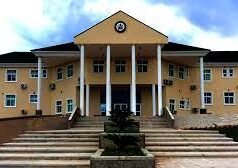Finding an affordable path to obtaining a Master’s degree in Nigeria can be a daunting task amidst the myriad of educational institutions spread across the country. Yet, aspiring postgraduates must find institutions that not only offer quality education but are also affordable. In this regard, there are several cheap schools and universities in Nigeria that stand out for their affordability and quality of education.
This blog post aims to explore these institutions, focusing on their Master’s degree programs and associated school fees.
Criteria For Master’s Degree In Schools and Universities in Nigeria
Table of Contents
When considering pursuing a Master’s degree in Nigeria, several key factors should guide your selection of an institution. These criteria are essential to ensure that you receive a quality education that is both affordable and suited to your academic and career goals. Here’s what to look for:
- Affordability: Evaluate the school fees and any additional costs. Affordability doesn’t mean the cheapest option, but rather the best value for the quality of education offered.
- Accreditation: Ensure that the institution and its Master’s programs are fully accredited by the relevant educational authorities in Nigeria, such as the National Universities Commission (NUC).
- Program Relevance: The offered Master’s degree programs should align with your career objectives and interests. Look for institutions that provide specialized programs that match your desired field of study.
- Faculty Quality: Research the qualifications and experience of the faculty members. Professors and lecturers with a strong background in their fields will enhance your learning experience.
- Facilities and Resources: Adequate facilities, such as libraries, laboratories, and research centers, are critical for a conducive learning environment and successful completion of your program.
- Reputation: The institution’s reputation for academic excellence and graduate success can be an indicator of the quality of education you will receive.
Considering these factors will help you make an informed decision when choosing an institution for your Master’s degree in Nigeria.
1) University of Lagos (UNILAG)
Nestled in the bustling city of Lagos, the University of Lagos, commonly referred to as UNILAG, emerges as a beacon for those seeking cost-effective yet high-quality postgraduate education. This institution is distinguished by its comprehensive array of Master’s degree programs that span a multitude of disciplines, catering to a wide range of academic interests and career aspirations.
One of the most appealing aspects of UNILAG is its tuition fees for these programs. Prospective students will find that the cost of advancing their education here is surprisingly manageable, with fees generally falling within the NGN 75,000 to NGN 150,000 range per academic session. This variation primarily depends on the chosen field of study.
- Estimated Tuition Fee: NGN 75,000 to NGN 150,000
2) University of Ibadan (UI)
Rooted in a rich history of pioneering higher education in Nigeria, the University of Ibadan stands as a testament to academic rigor combined with financial accessibility for Master’s degree seekers. Offering an expansive range of programs, UI is particularly known for its robust research initiatives and a diverse array of postgraduate courses that cater to the evolving needs of various professional sectors. The tuition fees, strategically set between NGN 100,000 to NGN 200,000 per academic session, reflect the university’s commitment to removing financial barriers to advanced education, while maintaining a high standard of academic excellence.
UI’s campus is a hub of intellectual activity, supported by a faculty of seasoned academics and researchers dedicated to fostering a stimulating learning environment. Students have access to well-equipped facilities, libraries brimming with resources, and numerous opportunities for hands-on research and scholarly exploration.
- Estimated Tuition Fee: NGN 45,000 to NGN 140,000
3) Obafemi Awolowo University (OAU)
Obafemi Awolowo University, set in the historic surroundings of Ile-Ife, is celebrated for offering a wide spectrum of Master’s degree programs that are both comprehensive and diverse. With a keen eye on making higher education accessible to a broader audience, OAU has positioned its Master’s program fees to be exceptionally affordable, typically ranging from NGN 90,000 to NGN 120,000 per academic session. This pricing strategy significantly lowers the financial barrier for prospective postgraduate students, making it an enticing option for those prioritizing cost-efficiency without sacrificing academic quality.
The university is not only a haven for affordability but also a center for academic excellence. It boasts a dynamic academic environment fueled by a community of dedicated scholars and students. The campus itself, known for its stunning natural beauty, adds to the allure of studying at OAU, providing a serene backdrop for academic pursuits. Furthermore, OAU’s commitment to fostering a supportive and enriching learning experience is evident through its provision of advanced facilities and resources.
4) Ahmadu Bello University (ABU)
Located in the historic city of Zaria, Ahmadu Bello University (ABU) presents a unique blend of tradition and modernity, attracting students from all corners of Nigeria and beyond. Known for its commitment to making higher education as accessible as possible, ABU has set its Master’s degree program fees to range between NGN 150,000 to NGN 300,000 per academic session. This tiered pricing accommodates various disciplines, making it feasible for a wider range of students to pursue advanced studies without the burden of exorbitant costs.
ABU distinguishes itself through a comprehensive catalog of Master’s degree courses that span the arts, sciences, and professional fields, ensuring that students can find programs that align perfectly with their academic and career ambitions.
Estimated Tuition Fee: NGN 60,000 to NGN 140,000
5) University of Nigeria, Nsukka (UNN)
With tuition fees set between NGN 120,000 and NGN 200,000 per academic session, UNN presents an attractive option for individuals seeking quality education at an affordable price point.
UNN’s commitment to fostering an enriching academic environment is evident through its distinguished faculty and vibrant research community. The university’s instructors are renowned for their expertise and dedication to student success, offering personalized guidance and support throughout the academic journey. This institution also emphasizes the importance of research, providing numerous opportunities for students to engage in innovative projects and scholarly activities that contribute to their fields of study.
Moreover, UNN is equipped with advanced facilities and resources, including comprehensive libraries and state-of-the-art laboratories, which enhance the learning experience and facilitate academic and professional development.
Estimated Tuition Fee: NGN 180,000 to NGN 240,000
FAQS
Which university has the cheapest school fees in Nigeria?
The university with the cheapest school fees in Nigeria can vary depending on factors such as the program of study, location, and student’s eligibility for scholarships or financial aid. However, some public universities known for relatively low tuition fees include:
- University of Lagos (UNILAG)
- Ahmadu Bello University (ABU)
- University of Ibadan (UI)
- Obafemi Awolowo University (OAU)
Which school has the lowest fee?
Determining the school with the absolute lowest fees in Nigeria can be subjective and may depend on various factors such as the type of institution (public or private), program of study, and student’s eligibility for scholarships or discounts. However, some public universities and polytechnics tend to have lower tuition fees compared to private institutions.
What’s the cheapest private university in Nigeria?
While private universities in Nigeria generally have higher tuition fees compared to public institutions, some may offer relatively lower fees compared to others. It’s essential to research and compare tuition fees, as well as consider factors such as academic reputation and facilities. Some private universities known for relatively lower fees include:
- Afe Babalola University (ABUAD)
- Lead City University
- Caleb University
Which college of education is the cheapest in Nigeria?
Colleges of education in Nigeria, which specialize in teacher training, typically have lower tuition fees compared to universities. However, the exact fees can vary depending on factors such as the institution and program of study. Some colleges of education known for relatively lower fees include:
- Federal College of Education (FCE), Zaria
- Adeyemi College of Education, Ondo
- Federal College of Education (Technical), Akoka
Which college is best with low fees?
Determining the “best” college with low fees in Nigeria can depend on individual preferences, academic goals, and other factors. However, some institutions known for offering quality education at relatively lower fees include:
- University of Ilorin (UNILORIN)
- Federal University of Technology, Minna (FUTMINNA)
- Lagos State University (LASU)
- Federal Polytechnic, Ilaro
- Kwara State Polytechnic, Ilorin
Prospective students need to research and compare different institutions, programs, and fee structures to make informed decisions based on their academic and financial considerations. Additionally, exploring scholarship opportunities and financial aid options can help offset the cost of education in Nigeria.
Conclusion
In conclusion, Nigeria is home to several affordable universities that offer quality master’s degree programs. Some of the affordable universities in Nigeria for international students include the University of Lagos, Ahmadu Bello University, University of Ibadan, and the University of Nigeria.
The tuition fees for these universities range from NGN 50,000 to NGN 250,000 per year, depending on the program and the university. However, students should also consider other expenses such as accommodation, health insurance, and transportation. International students may also be eligible for scholarships and grants offered by the Nigerian government and other organizations. Overall, studying in Nigeria can be an excellent opportunity for students to receive a quality education at an affordable cost, while also experiencing the rich cultural heritage of Nigeria and making new connections.









